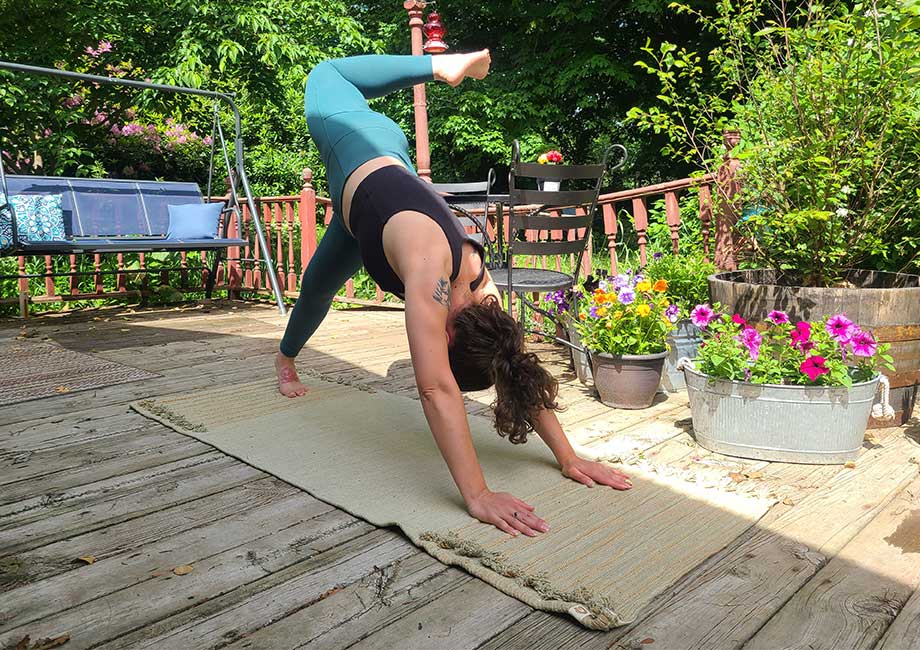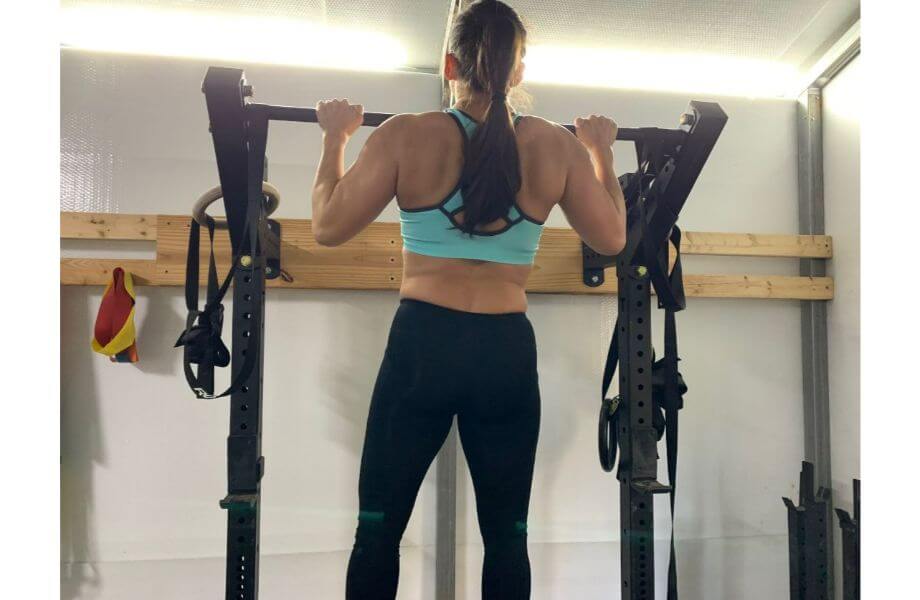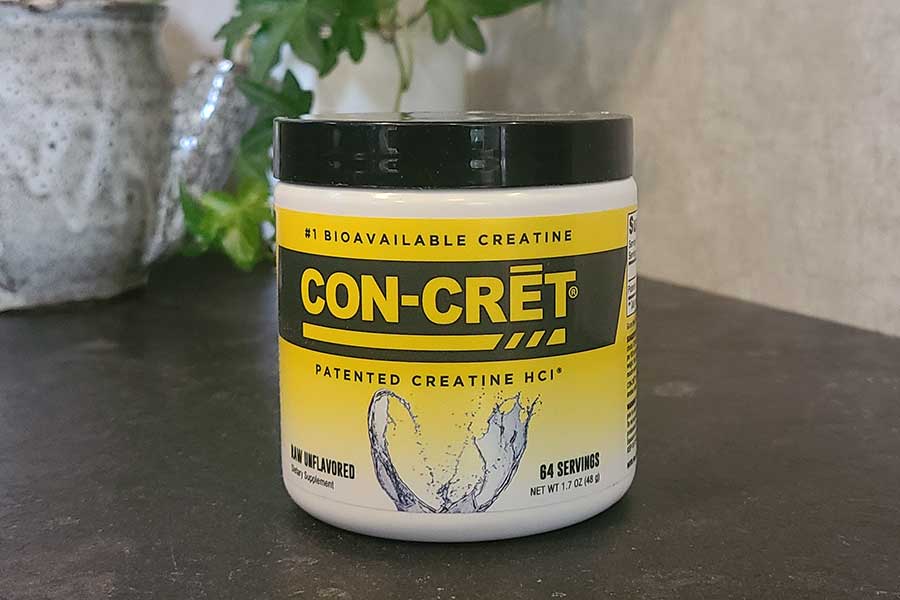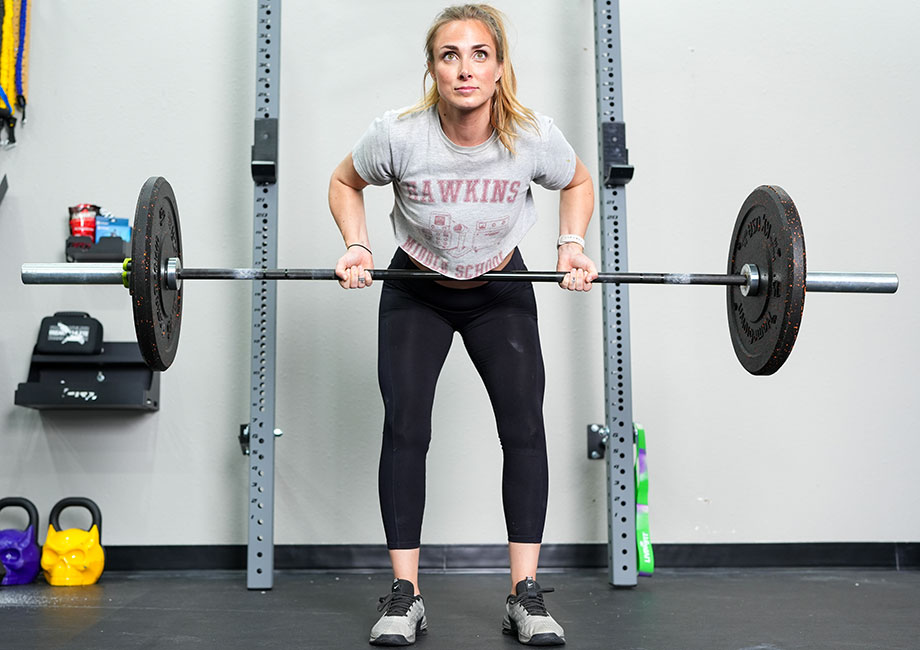If you’re a long-time Garage Gym Reviews reader, you may be familiar with our reviews and videos on the best home gym equipment, ranging from squat racks to treadmills. While traditional strength and conditioning is at the core of what we do, our team of experts has the utmost respect for the yoga practice (and a quality savasana pose).
It is, afterall, an ancient practice with roots dating as far back as 5,000 years ago1 in Northern India. In Sanskrit yoga means to join or unite.
Over the storied history of yoga, there have been many great leaders and gurus, but Tirumalai Krishnamacharya is one of the most recognized for bringing Hatha yoga to the forefront of Western practice, a technique still used today that focuses on balancing quality yoga poses (aka asanas) and traditional breathwork with less demand on speed and pace.
While our experts are still getting our feet wet, we’ve started to explore different forms of yoga, yoga apps, and yoga accessories. In this article, we’re going to take a look at the popularity and benefits of yoga.
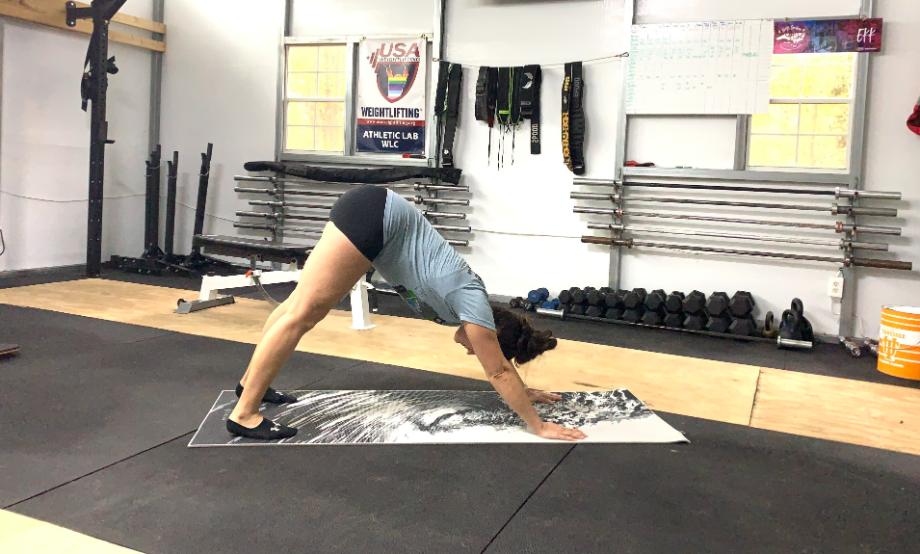
Quick Facts About Yoga
Before we dive into the details, here’s a birds-eye view of the yoga facts:
- Worldwide, over 300 million people2 practice yoga.
- In America, about 38 million people3, or over 10% of the population practice yoga.
- Yoga is the second most popular exercise class4 worldwide.
- The benefits of yoga include increased balance, strength, increased blood flow, and improved mental health.
- Studies have shown that yoga lowers cortisol levels5 and can impact the way our cells mature6 as we age, which can result in a longer, healthier life.
- The yoga industry is predicted to be valued at $116.57 billion in 20243.
- There are 14,752 registered yoga instructors7 in the United States, who make an average of $45,673 per year.
- There are 24,913 yoga studios8 in the U.S.
How Popular is Yoga?
Yoga is a widely practiced form of exercise, with 300 million people2 participating in different types of yoga worldwide. And of those 300 million people, about 72% of yogis identify as female2.
A Harvard Health Publishing9 survey found that folks who do yoga are more physically active than those who don’t. The survey reported that 75% of people who practice yoga also participate in other forms of physical activity, including sports or strength training.
Another survey from the National Institutes of Health10 (NIH) reported nearly 66% of yogis say that practicing yoga helps to stay more motivated to exercise regularly and eat more healthy.
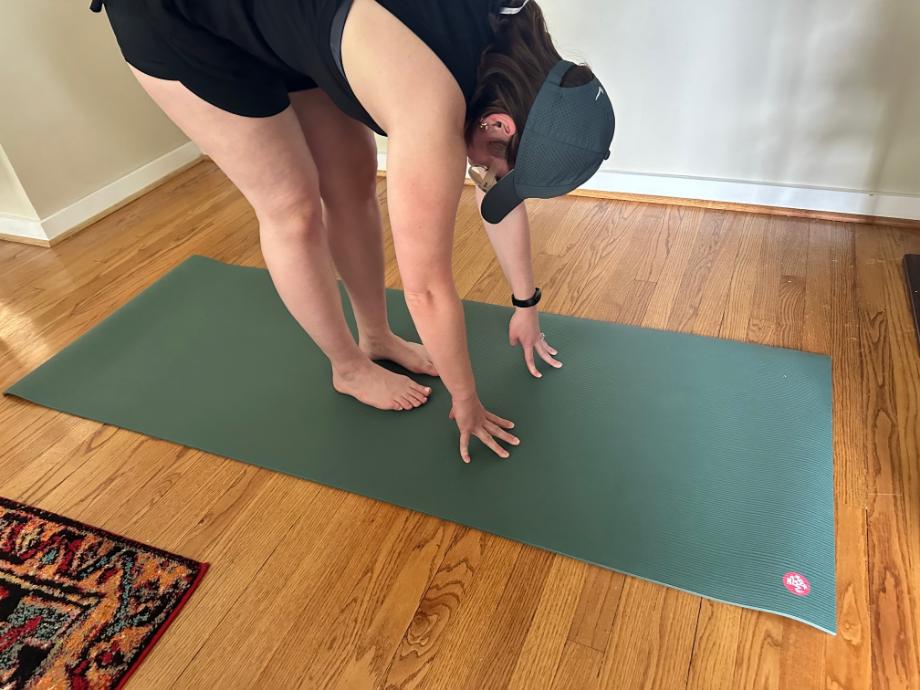
Different Styles of Yoga
There are many different styles and forms of yoga, making it difficult to understand what kind of class you’re walking into or signing up for online. And, within each style, different instructors, studios, or online apps may teach them at a different pace or tempo.
Some of the most popular styles of yoga include:
- Hatha yoga: The word “hatha” means force, and this style aims to unite posture and breathing techniques (aka pranayamas) without too much focus on speed, making it an excellent option for beginners or folks who want to practice the pranayama aspect of yoga.
- Vinyasa yoga: This faster-paced yoga class flows through numerous sun salutations, or a specific list of yoga poses, one right after the other. Vinyasa may also sometimes be called power yoga.
- Ashtanga yoga: Main focus is to synchronize breath with faster movements and poses.
- Yin yoga: This is a slow-paced form of yoga that holds yoga poses for longer durations.
- Hot yoga: This practice may also be called Bikram yoga, and in most cases, it’s a specified list of 26 postures in a hot room running from 80 to 100 degrees Fahrenheit.
- Iyengar yoga: This practice centers on alignment, quality of poses, and using yoga accessories like blocks and straps.
- Kundalini yoga: This form of yoga has a spiritual aspect with repetitive mantras, chanting, singing, and breathing techniques in addition to a flow-like yoga practice.
While yoga is physically demanding, there are styles aimed at creating greater accessibility with chair yoga and restorative yoga. There are also pre- and postnatal yoga options that take into account pregnant people experience more joint instability and often suffer from back pain.
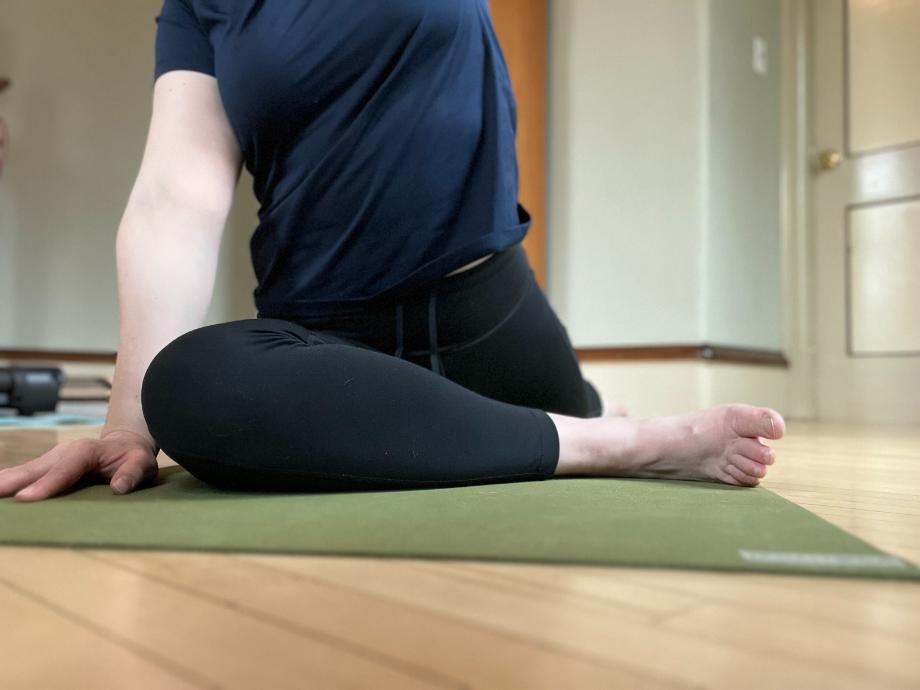
Popularity of Yoga in the US
Yoga was introduced to the United States around the turn of the 21st century1 and has grown to 38 million people practicing yoga in the United States, about 10% of the population3.
The Harvard Health9 survey mentioned earlier found that yoga is on the rise among those who identify as male, with about 10 million American men reporting regular practice. The same survey also found that 14 million Americans over the age of 50 years old are also practicing yoga.
General well-being and yoga-style retreats are also a hot topic in the United States. Bookretreats.com reports there are over 500 yoga retreats throughout the country for both the physical and mental aspects of yoga.
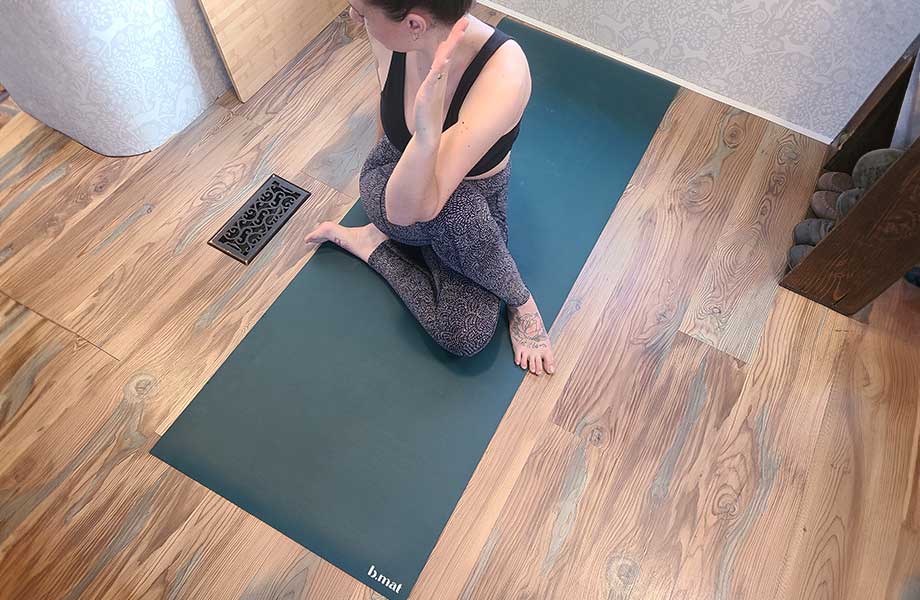
Yoga Teachers and Yoga Practitioners
Thinking about ditching your day job and becoming a yoga teacher? Let’s dive into the yoga stats about teaching before you make a decision.
To become a yoga instructor, you typically need to complete a 200- or 500-hour certification course. Depending on how you take yoga lessons or which yoga school you enroll in, you’ll earn one of the following certifications: RYT 200, E-RYT 200, RYT 500, or E-RYT 500.
There are nearly 49,000 yoga studios in the United States8 and about 15,000 yoga instructors spread out from California to New York according to a career report from Zippia.com7.
According to that same report, yoga instructor demographics break down to about 87% women and 13% men, with about 13% of instructors identifying as part of the LGBTQ+ community. The average age of a yoga instructor is 37 years old. Additionally, the average yoga instructor makes $45,673 annually, but salaries vary quite a bit from state to state.
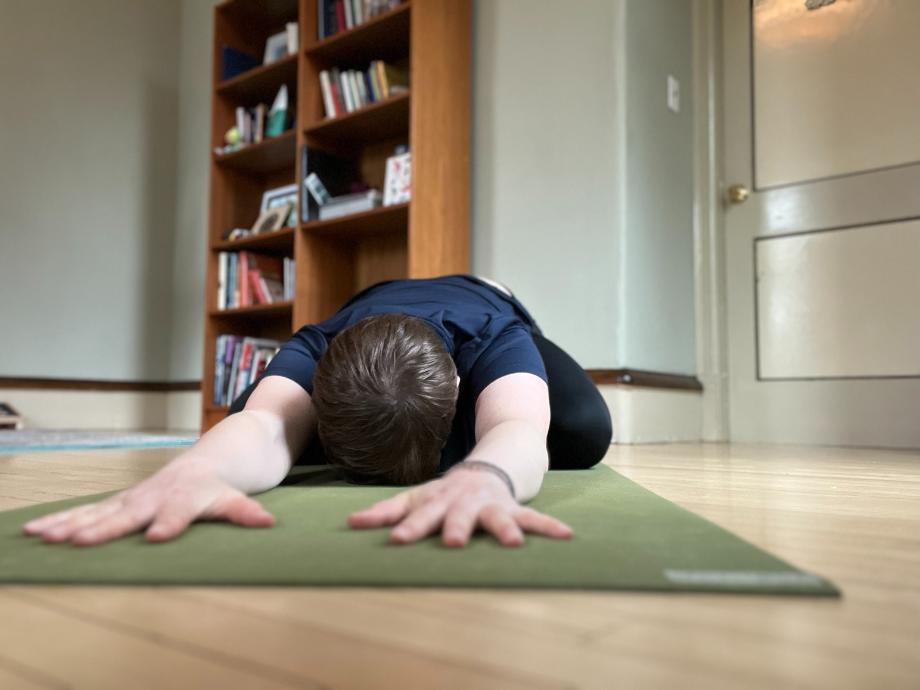
Yoga Studios and Taking Yoga Lessons
There are nearly 49,000 pilates and yoga studios11 across the nation, and the average American yogi spends about $1,000 per year on classes, workshops, accessories, and apparel (like yoga pants). On average, yoga enthusiasts will spend around $62,640 over the course of their lifetime on yoga classes and accessories.
It’s expected that yoga will have a compound annual growth rate (CAGR) of 9.6% from between 2021 to 202711.
While there are plenty of in-person options, Zippia.com reports that 67% of people practice yoga at home. Yoga doesn’t require much more than a yoga mat and a few accessories like a strap, blocks, or pillow for additional comfort.
Our experts have found there are endless yoga app options and even more resources on YouTube, boasting more than 250 million yoga videos and more than 2,000 yoga-related channels.
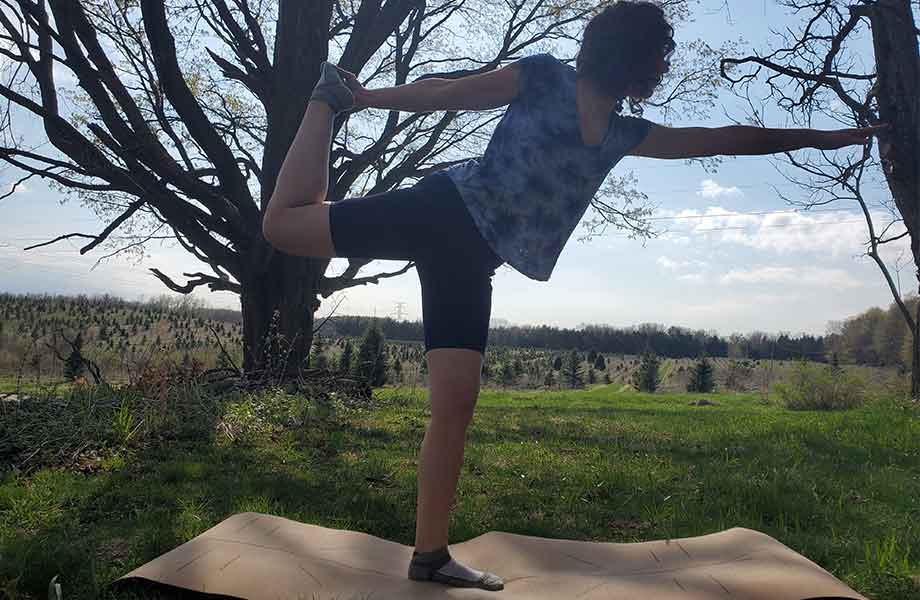
Potential Health Benefits of Yoga
Yoga is one of many methods to combat a sedentary lifestyle and promote movement, thus increasing flexibility and strength. It’s also a type of exercise that can be heavily modified for beginners and progressed for advanced yogis.
Breathing techniques and mantras can help yoga practitioners transform physical movement into mental-health exercise. While there are many different styles of breathing (and yoga, for that matter), a controlled breathing sequence can offer a meditative state for the mind, which has known benefits for mental health12. As a matter of fact, 86% of people who practice yoga say it helps reduce stress2.
A recent study from Harvard Health13 shows that folks who practiced hot yoga twice per week reduced their depression symptoms by 50%. Plus, the 2015 Harvard Health9 survey states people who practice yoga regularly are 20% more likely to have a positive outlook on their own mental and physical health.
And speaking of physical health, 54% participate in yoga to release tension and 61% of people practice yoga to increase mobility and flexibility11.
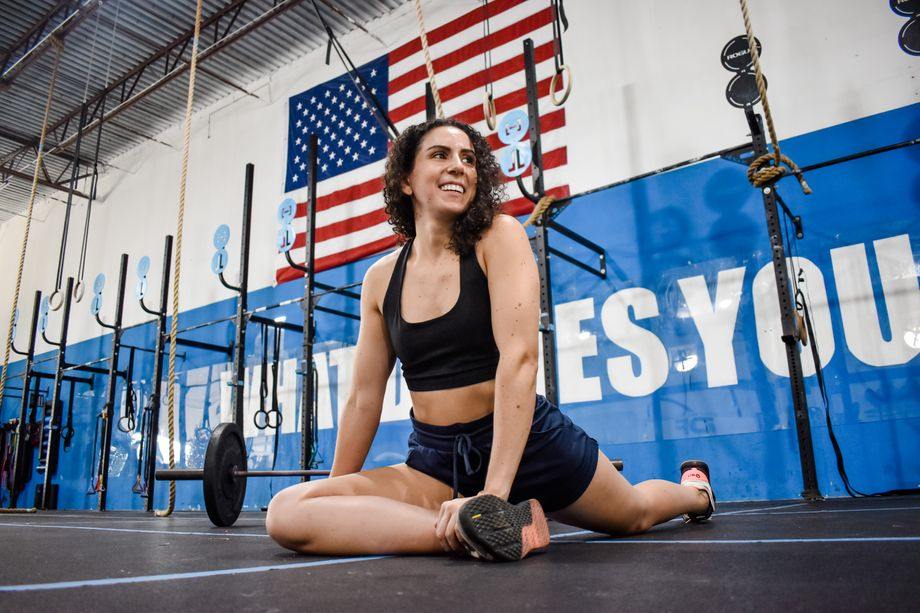
Some additional benefits of yoga for exercise include:
- Strength: Holding yoga poses can help increase muscular strength much like bodyweight workouts.
- Balance: Many yoga poses are offset or require balance on a single leg. Practicing this can help build core strength and overall balance and reduce your risk of falling.
- Flexibility: Many yoga poses require full range of motion of your joints, especially through your lower body.
- Pain relief: Yoga can help build strength, improve mobility, and gently move your body through different ranges of motion.
- Heart health: Exercise in general can help improve your heart health and put you at a lower risk of heart disease and lower blood pressure 14.
- Increased blood flow: Piggybacking on heart health—yoga can increase blood flow and improve circulation throughout the body.
- Relaxation and sleep: While certain yoga poses can help aid a restful sleep, the deep relaxation comes from the meditative-like properties15.
- Mental health: The breathwork aspect of yoga offers a meditative state for the mind, which can promote mental health and reduce stress12.
Yoga Facts and Statistics: Final Thoughts
Learning more about yoga makes you want to unroll the best yoga mat and get into downward dog, right? With regular practice offering both mental and physical benefits, it’s hard to say no.
Yoga is already popular, with 300 million people practicing it worldwide. Plus, the yoga industry is expected to keep growing. It may be time to look into the best yoga and Pilates apps or find a studio near you!
Yoga Facts and Statistics: FAQs
What is yoga?
Yoga is a physical and mental practice intended to build strength, and flexibility, and offer mental clarity. There are many different forms of yoga, but most yoga is performed on a mat, with your own body weight, and holding a variety of poses for different lengths of time.
What is the main benefit of yoga?
Physically, yoga can help you strengthen your body, increase flexibility, and increase the range of motion through your ankles, knees, hips, and shoulders. Mentally, the breathwork aspect of yoga can help you reach a meditative state, which may lead to mental clarity and better mental health.
Is yoga a religious thing?
While yoga is often associated with religion or philosophy, our experts look at yoga as more of an exercise. However, the mindset and intention behind yoga practice will vary from person to person. For some folks, yoga may feel primarily like a spiritual experience while others may practice solely for the physical aspect.
Is 30 minutes of yoga a day enough exercise?
The CDC16 recommends adults get at least 150 minutes of moderate to vigorous cardiovascular exercise every week. While 30 minutes of yoga is enough time spent exercising, you may need to consider if your preferred yoga practice fits the “moderate to vigorous” recommendation.
What yoga is best for beginners?
Hatha yoga is an excellent choice for a first time yoga class and beginners. It’s not as face-paced as Vinyasa yoga and prioritizes quality poses over speed.
References
- Pandurangi, A. K., Keshavan, M. S., Ganapathy, V., & Gangadhar, B. N. Yoga: Past and Present. American Journal of Psychiatry. 2017.
- Jakhmola, A. P. Yoga Statistics. Yoga Vidya School. September 2023.
- Yoga Market Size and Trends. Grand View Research.
- The most popular exercise classes in the US. Santa Clarita Valley Signal. 2024.
- Katuri KK, Dasari AB, Kurapati S, Vinnakota NR, Bollepalli AC, Dhulipalla R. Association of yoga practice and serum cortisol levels in chronic periodontitis patients with stress-related anxiety and depression. J Int Soc Prev Community Dent. 2016.
- Sawarkar SG, Shekhar C. Impact of Yoga and Meditation on Cellular Aging. Medico Research Chronicles. December 2018.
- Yoga Instructor Demographics And Statistics In The US. Zippia: The Career Expert.
- List of Yoga studios in the United States. Rentech Digital: Smartscraper.
- New survey reveals the rapid rise of yoga. Harvard Health Publishing. 2016.
- Americans who practice Yoga report better wellness, health behaviors. National Institutes of Health. 2015.
- 25+ Interesting Yoga Industry Statistics [2023]: Yoga Trends + Revenue. Zippia: The Career Expert. 2023.
- Jamil A, Gutlapalli SD, Ali M, et al. Meditation and Its Mental and Physical Health Benefits in 2023. Cureus. 2023;15(6):e40650. Published 2023 Jun 19. doi:10.7759/cureus.40650
- Harvard study: Hot yoga may help ease depression. Harvard Health Publishing. 2024.
- 9 Benefits of Yoga. John Hopkins Medicine.
- Yoga for Sleep. John Hopkins Medicine.
- Centers for Disease Control and Prevention. How much physical activity do adults need? 2023.


